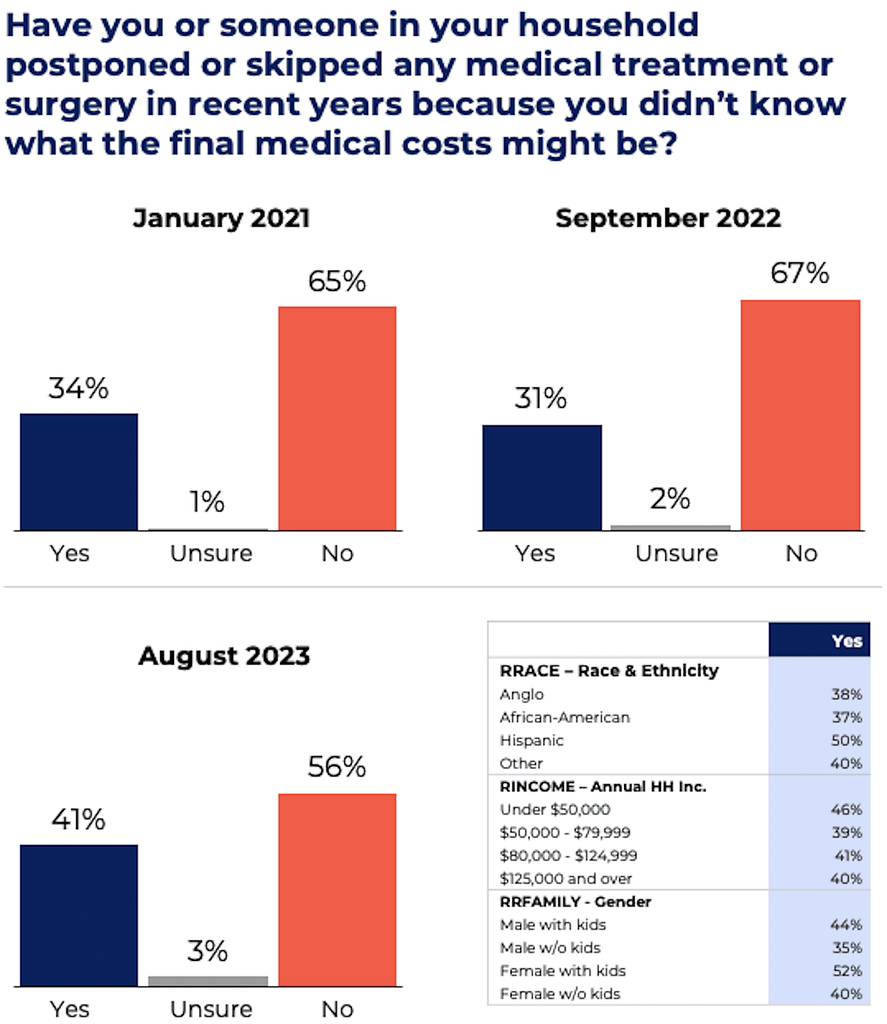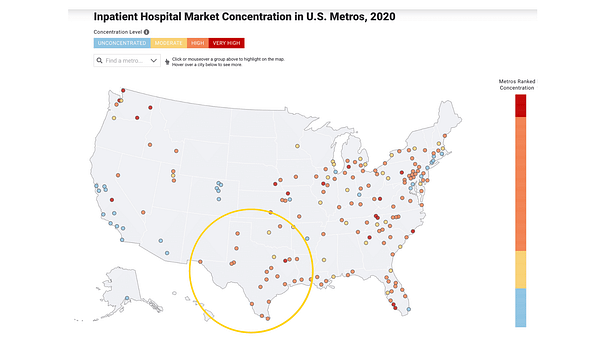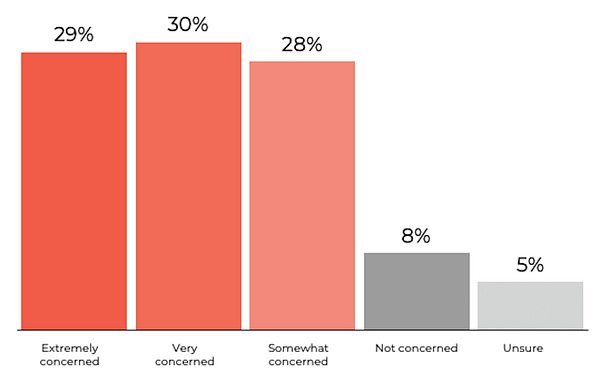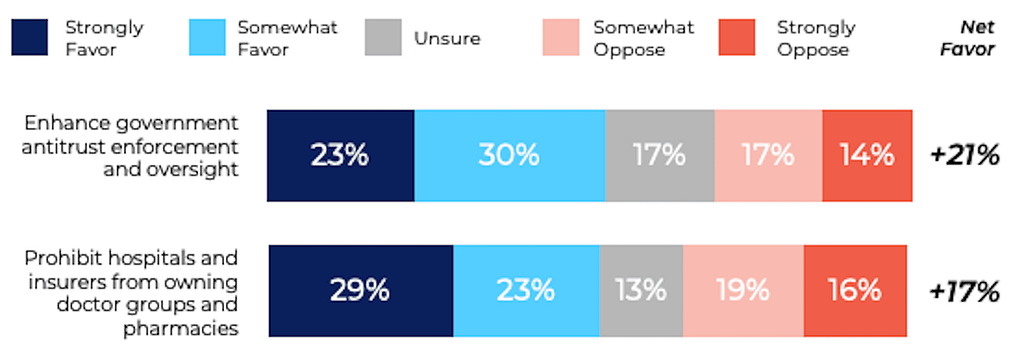More Texans skipping care due to uncertainty over medical bills
41% Texas voters said they or a household member postponed medical treatment due to uncertainty over the final size of medical bills; the latest Texas Voter Poll indicates concern over higher prices caused by health care consolidation.
More than four in 10 Texas voters, or 41%, say they or a household member postponed or skipped treatment or surgery because of uncertainty over what the final price of care might run, in the latest release of polling data from Texas 2036’s Texas Voter Poll.
Uncertainty over the final size of medical bills were especially pronounced among mothers and Hispanics, our poll found. A total of 52% of surveyed mothers and 50% of surveyed Hispanics said they or a household member postponed or skipped care over anticipated medical bills.
“In healthy markets, informed consumers can shop for care, compare providers on both price and quality, and select them on the basis of their overall value,” said Charles Miller, senior policy advisor at Texas 2036. “In order for Texas to achieve that vision, our markets need to be informed, competitive and engaged.”
Medical bill fears are up significantly
The 41% of Texans who postponed or skipped treatment or surgery because of uncertainty over the final total price represents a significant increase from the last two times we asked this question in the Texas Voter Poll. About a third, or 34%, of surveyed voters in January 2021 and 31% of surveyed voters in September 2022 told us they or a household member postponed or skipped care.

In addition to their frustrations over the lack of transparency of medical prices, Texans also told us they are concerned about consolidation in the health care industry with a majority saying they favored government action to curb consolidation, according to findings from the 7th Texas Voter Poll, a survey of 1,000 registered Texas voters conducted at the end of August by Baselice and Associates for Texas 2036.
Status quo is unacceptable
Texas voters also made clear their belief that the state needs to move on from the status quo when it comes to addressing consolidation in the health care sector. More than two-thirds, or 68%, said they opposed maintaining the status quo while just 18% said they favored doing nothing.


Voters expressed their frustration with the status quo so much that 51% of Texas voters even said they backed implementing some form of government price control or rate setting.


But not all potential solutions appear popular among Texas voters. Moving toward a single-payer, government run health care system was the second least popular, beating out only doing nothing and maintaining the status quo.


“Texans are clear that doing nothing isn’t an option, and they have expressed a preference for market-based solutions that harness competition and transparency, rather than a wholesale government takeover,” Miller said. “But if lawmakers don’t engage to empower healthy markets, single-payer alternatives loom on the horizon as more popular than the status quo.”.
Voters favor action to address high prices caused by health care consolidation
More than 60% of Texans live in a highly or very highly concentrated hospital market, according to a Texas 2036 analysis of data provided by the Health Care Cost Institute. Independent research from health economists has found that consolidation leads to higher prices for health care.
Texas voters told us in the latest Texas Voter Poll that this trend toward consolidation in the health care sector concerns them greatly and makes them inclined to back active measures by the government to curb consolidation.

Shown another way, this nationwide map of inpatient hospital market concentration in U.S. metros highlights how many of Texas’ urban health care markets are highly concentrated.

In our survey of Texas voters, 87% said they were concerned about consolidation in the health care sector with majorities expressing support for enhanced antitrust enforcement (53%) and prohibitions on hospital or insurer-owned doctor groups and pharmacies (52%).



Miller explained, “Policymakers interested in addressing high prices for Texas health care could consider policies to limit opportunities for further market concentration, reduce existing concentration of markets and mitigate the harmful impacts that existing concentration has on prices.”
He added, “By addressing any of these underlying causes of high health care prices, Texas could make major improvements in the availability of affordable care.”
Texas voters also voiced strong support for a newly-passed law that empowers employers to help their employees access lower-cost care by prohibiting many of the anticompetitive practices that have driven up health care costs amidst consolidation. House Bill 711 by Rep. James Frank and Sen. Lois Kolkhorst passed earlier this year with the support of 99% of lawmakers. Texans overwhelmingly support this bill when informed of its intent, with 79% favoring and just 10% opposing.
Texas Voters Oppose Certain Facility Fees
Voter opinions were mixed regarding an emerging issue of facility fees charged by some medical providers. While a plurality of Texas voters appear to support facility fees tied to inpatient hospital stays, majorities of Texans believed the Legislature should not allow hospitals to charge facility fees for telehealth visits (59% would not allow, while 31% would allow) and primary care services offered in non-hospital settings (57% would not allow, while 34% would allow). Pluralities oppose facility fees for primary care received in a hospital (47% would not allow, while 43% would allow) and for emergency room services (47% would not allow, while 44% would allow).
About the Texas Voter Poll
The 7th Texas Voter Poll, conducted by Baselice and Associates for Texas 2036, surveyed 1,000 registered Texas voters between Aug. 22 and 29, 2023. The poll has a margin of error of +/- 3.1% and utilized a multi-platform approach including phone interviews (52%), SMS (13%), and online surveys (35%). For detailed poll results, please visit www.texas2036.org/poll.
